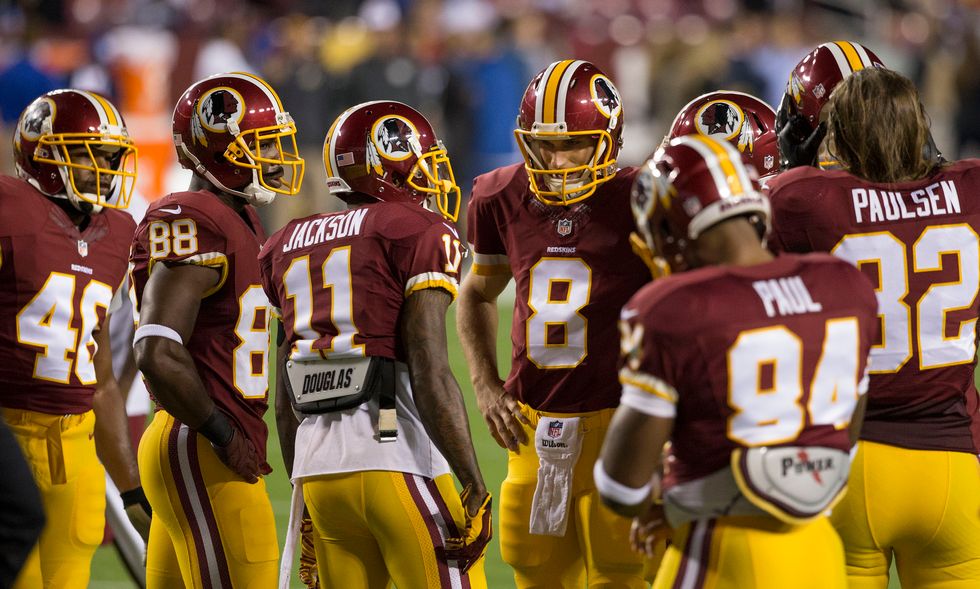The Washington R*dskins are under perpetual fire for their name. In the modern era, R*dskin is and should be recognized as an offensive term.
Origins of the word are cloudy. Some historians attribute it to the Beothuk tribe, who painted themselves with red ochre and were referred to as “red men” by white colonizers. Smithsonian historian Ives Goddard argues that the term became a self-identifier for Native Americans in negotiations between them and the white men. Earl Emmons’ book “Redskin Rimes” is noted as being emblematic of the term as a derogatory slur.
However its history is relayed, the term forces enough backlash and controversy for the understanding to be commonplace. R*dskin should hardly be tolerated as the name of an American football team.
Team owner Dan Snyder is well aware of the backlash, but in a lengthy 2013 letter to team fans, he defends the “tradition” of the name and its accompanying songs or cheers. For him, the name is not a label, but “a badge of honor.”
On Thursday, December 14th, a women-lead indigenous activist group called Rising Hearts sought to resend the popular message to Snyder. Their methods were unlikely; they released a series of spoof news stories that vividly mimicked the layouts of legitimate news platforms, all of which claimed that the team name had been changed. Per their spoof stories, the Washington R*dskins had become the Washington Redhawks.
In conversation with Teen Vogue, two organizers explained their intent. In effect, they performed a mock trial of what would happen if the name were actually changed and the “tradition” broken. Their #GoRedhawks sites received half a million visitors. Though they fell under fire for perpetrating the spread of “fake news” in an environment already so susceptible to it, they deem the art of “fake news” one of malicious intent. Their goal was to instead “start the conversation around racist mascots,” and was a goal that they claim was widespread.
They emphasize the lack of understanding behind the wrongfulness of the mascot and the name, positing that it “actually does real psychological harm to native people, particularly native youth.” This stems from the fact that positive representation of the Native American identity often escapes mainstream media. To dismiss the issue as arbitrary and unimportant would be to further dismiss that identity.
In a vivid comparison, the organizers say, “If they’re dehumanizing us with this mascot, it’s parallel to the dehumanization that the American government practices in forcing pipelines on us, allowing violence against women on reservations, imposed poverty in our communities.”
The Rising Hearts are doing what they feel is most important: garnering attention. With movements like these, that’s a vital start.









































